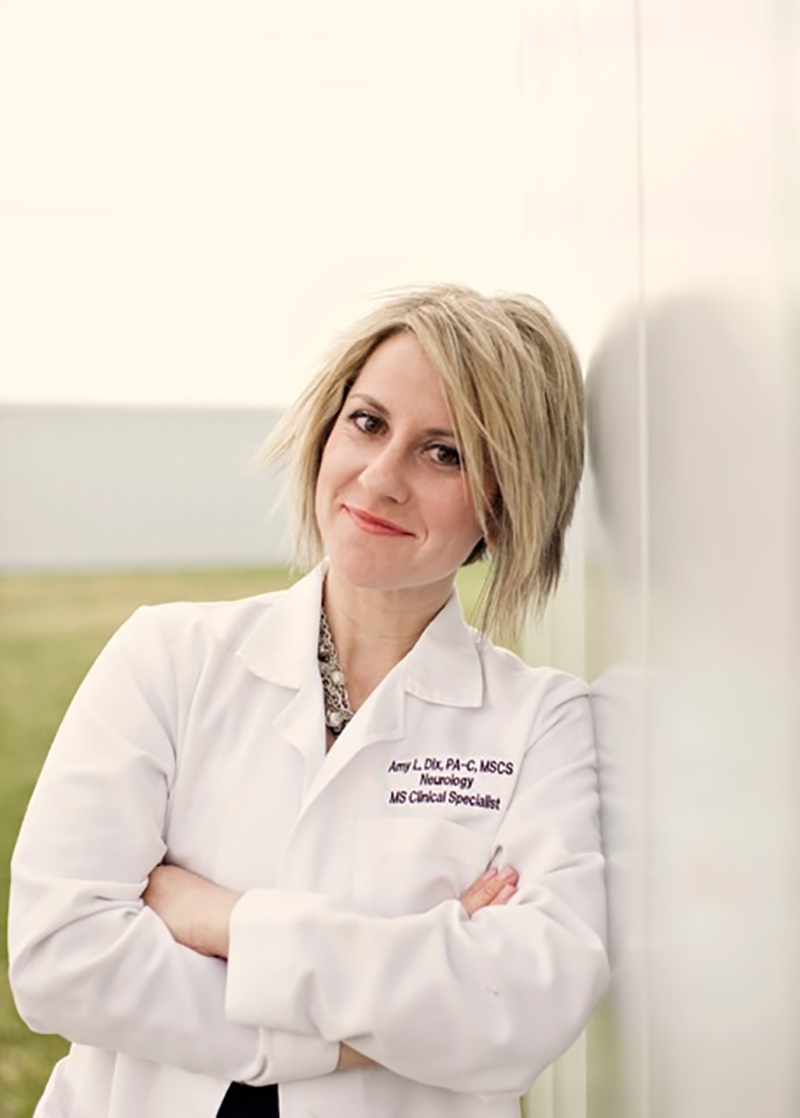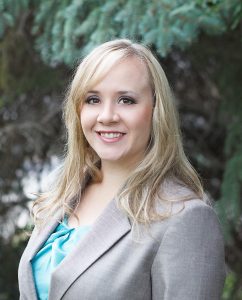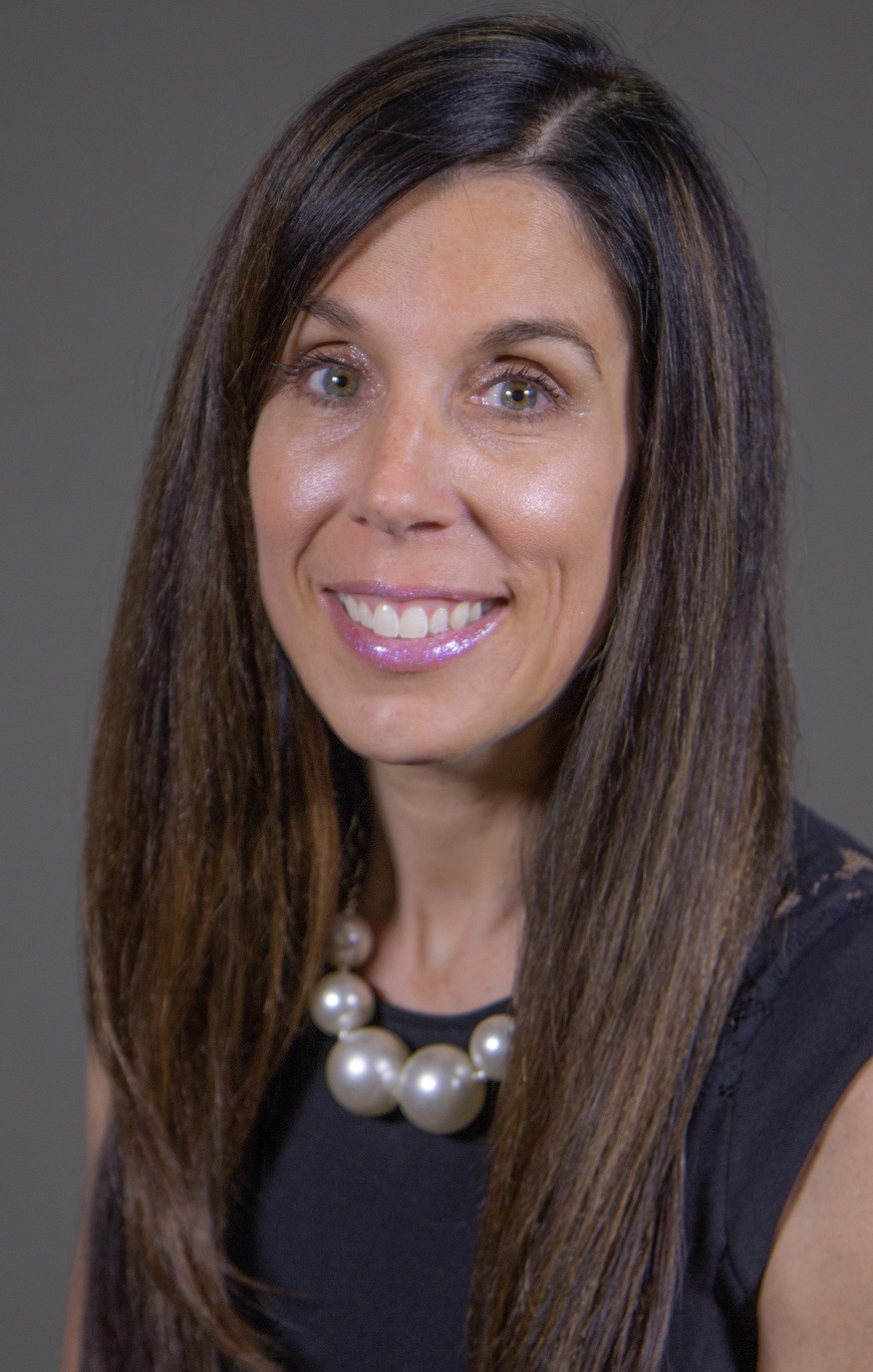How One PA Became an ‘Expert Authority on MS Care and Management’
Amy Dix Improves Care and Advances the Profession
February 27, 2019
By Jennifer Walker

Earlier this year, Cortnee Roman, a neurology NP, sent an email to AAPA, praising Amy Dix, MPAS, PA-C, a neurology PA, for her innovative patient care and her role as a leading influencer in the field. “She has also been a loud advocate for the role of PAs on a state and national level,” wrote Roman, who has participated on neurology advisory boards with Dix for years.
According to the 2018 AAPA Salary Survey, 1.0% of clinically practicing PAs specialize in neurology. In that world, Dix is well-known for her ability to collaborate with various types of providers. This has led to her spearheading initiatives at her own clinic, the Kansas City Multiple Sclerosis and Headache Center at College Park Family Care Center (CPFCC) in Overland Park, Kansas, and advocating for PA inclusion and recognition in large organizations for neurology providers. A believer that PAs and NPs could be at the forefront of research, Dix is also enrolled in the Doctor of Philosophy in Health Science program at Nova Southeastern University in Fort Lauderdale, Florida, and is beginning to work on her own research proposals focused on multiple sclerosis and migraine topics.
“She’s very collaborative, she communicates well, and she’s respectful of other people’s skills and knowledge. Dealing with her is a delight,” says June Halper, an NP and the CEO of the Consortium of Multiple Sclerosis Centers (CMSC) and the International Organization of Multiple Sclerosis Nurses, who works closely with Dix in both organizations and whom Dix considers to be the expert authority on MS care and management. “Knowing Amy, she’s [also] very busy. She never lets grass grow under her feet.”
Early influences
Dix’s motivations for becoming a PA go back to her childhood, when she was a nine-year-old girl with asthma growing up in Kansas City. It was that year that Dix was finally referred to a specialist, where she found the right combination of treatment and education. She went on to play competitive sports in high school with the support of her medical team, which, at the time, included Jeffrey Wald, MD, and Scott Frankel, MD, of Kansas City Allergy & Asthma Associates, and Clinical Nurse Educator Berry Mitchell. This showed her the benefits of a comprehensive care model when treating chronic conditions. She also discovered that helping others realize their full potential would be part of her career path.
Dix also became interested in research from an early age when she participated in several clinical trials for young people with asthma. Dix’s dad, Randy Dix, a high school biology teacher, also frequently exposed her to science. As a result, Dix spent a summer in a microbiology lab when she was 16 years old and attended local conferences for young women in science in Kansas City.
When it came time to make a career decision, “I knew I wanted to get a PhD, but I wanted the clinical exposure first,” Dix says. “Becoming a PA was the first step.”
Neurology and comprehensive care
When choosing a PA program in the early 2000s, Dix knew that she wanted to be in a community where a large number of PAs and NPs were practicing. This led her to Le Moyne College in Syracuse, New York, which she attended from 2002 to 2004. After graduation and a year in New York working in asthma, allergy, and immunology, Dix moved back to Kansas and chose to specialize in neurology “because I thought I would have a better opportunity to do comprehensive care and create medical education and help the whole person,” she says.
In 2006, Dix began working at CPFCC as one of the first two neurology PAs in Kansas. Around that time, she was selected to attend a two-day Multiple Sclerosis Fellowship led by Elliot Frohman, MD — a prominent practitioner in the MS field — at the University of Texas Southwestern Medical School in Dallas. With Frohman’s mentorship and program, Dix saw what a comprehensive care center for MS patients looks like. She came back to Kansas and helped recreate that center, ultimately co-founding The Kansas City Multiple Sclerosis and Headache Center (known as the KC MS & Headache Center) at CPFCC.
[Search AAPA’s CME Catalog for Neurology]
Today, Dix is the assistant director of infusion and research for KC MS & Headache Center. Here, she collaborates with many types of providers, including primary care physicians, physical and occupational therapists, surgery, dermatology, and functional medicine and dietician teams. In her treatment plans, Dix, who also has education in nutritional biochemistry through the Clinical Nutrition Certification Board and plant-based nutrition from Cornell University, also incorporates gait rehab, nutrition, sleep, and exercise recommendations.

Roman, who practices at Rocky Mountain Multiple Sclerosis Clinic in Salt Lake City, Utah, sees Dix as her “go-to resource for data [that supports] complementary and alternative treatments as an adjunct to current FDA-approved medication treatments,” she says.
Collaborating to improve care in Kansas
At CPFCC, Dix’s ability to collaborate with others led to her advocating for the utilization of gap year students as medical assistants (MAs) at CPFCC. Because the neurology clinic was having a difficult time retaining staff in this position, Dix worked with local educational entities, such as the University of Kansas and Kansas State University, to find young people who were in their gap year and who had a desire to go on to medical school or a PA program to be MAs. These candidates stay in the MA position for one or two years before continuing on with their education. Since 2012, 13 former MAs have enrolled in medical school and six have enrolled in PA programs.
“That [gap year program] is brilliant,” says Roman, who has been advocating for the implementation of a similar program at her clinic in Utah. “It’s a well-organized, mutually-beneficial program for the student as well as the institution.”

Collaborating across providers
In the neurology field, Dix is always going out of her way to network and make connections with other providers, says PA Christen Kutz, who holds a PhD from Nova Southeastern University — the same university that Dix attends — and practices at Colorado Springs Neurology Associates. “I’ve been to meetings with [Amy} before that have neurologists, NPs, and PAs, and she knows everyone. And everyone knows her.”
It was meeting other PAs at these meetings that led Dix to start the Association of Neurology PAs, an organization that provides contact information for nearly 140 neurology PAs who are based around the U.S. Dix has also advocated for PAs to be included in national neurology organizations. Five years ago, she was also one of the first PAs to join CMSC, the MS consortium. Since then, she has helped create a special interest group for PAs, which she co-chairs, and along with PA Bryan Walker of Duke University, sits on the CMSC Board of Governors, which meets twice annually to develop policies and programs for the organization.
Dix has also encouraged some of her PA and NP colleagues to pursue advanced degrees so they can get involved in research. (In turn, it was Kutz, the PA from Colorado, who inspired Dix to attend her PhD program.) Roman, who once wasn’t interested in pursuing her doctorate, has changed her mind after observing and collaborating with Dix.
Now, “I plan to pursue a PhD so I can help create new knowledge in our field and further strengthen the impact of our profession,” Roman says. “NPs and PAs have a unique perspective on patient care that is often not heard enough. Our skill sets and experience can enhance the healthcare team’s strategy to improve patient care. Amy’s pursuit of higher education, [her] advocacy for the role of PAs, and her unrelenting encouragement of [her] peers to accomplish more is inspiring. [She] is leading the charge for all of us.”
More Resources:
Association of Neurology PAs
Health Workforce Projections: Neurology Physicians and Physician Assistants
Physician Assistant Doctorate: A Ticket to Autonomy?
Jennifer Walker is a freelance writer in Baltimore, MD. Contact Jennifer at [email protected].
Thank you for reading AAPA’s News Central
You have 2 articles left this month. Create a free account to read more stories, or become a member for more access to exclusive benefits! Already have an account? Log in.



